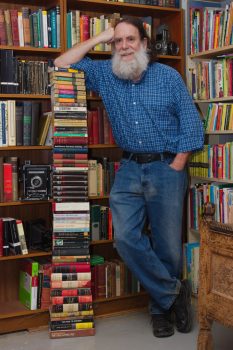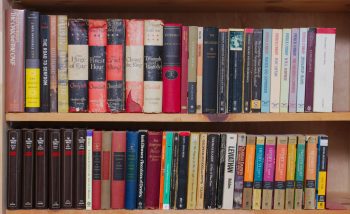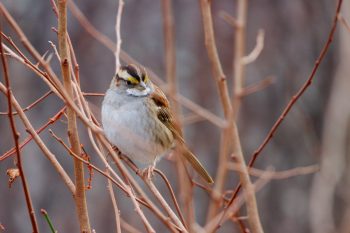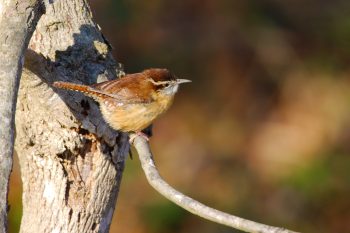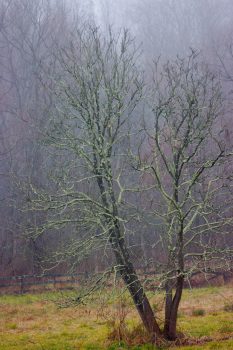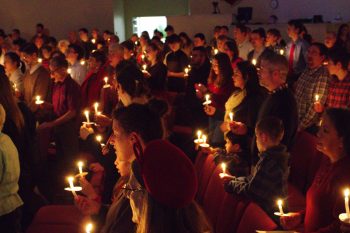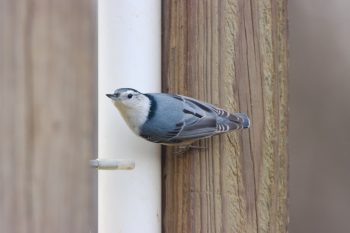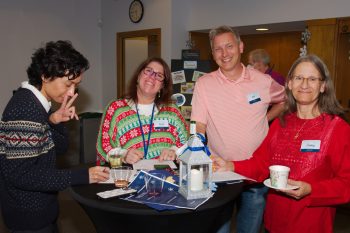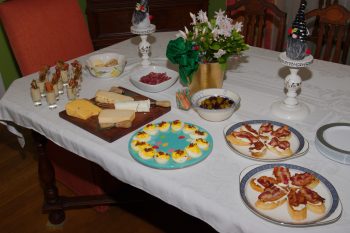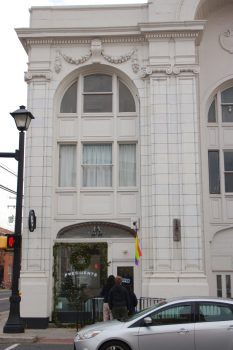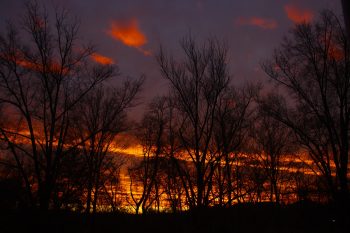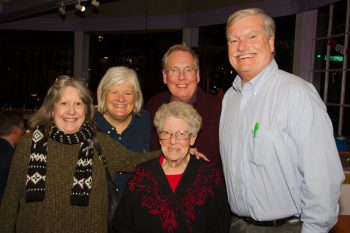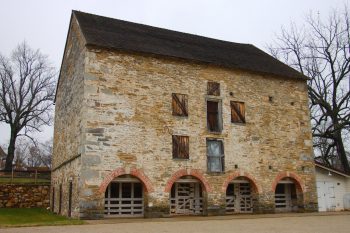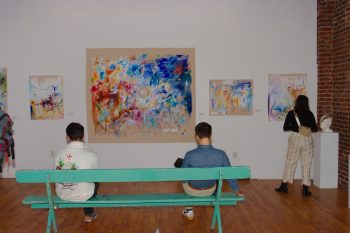I started the year with enough books waiting to be ready to last me the entire year, unless I really pushed myself. First up, I decided to read volumes two through six of Winston Churchill’s six volume series the Second World War. I read the first volume in 2017 and decided it was time I read the rest. At a combined 4,114 pages, I expected these five remaining books to take me quite a while and would probably have been satisfied if I did nothing else all year. As it turns out, I finished in the third week of February. In all I finished 57 books, the same number I read last year. The books this year, however, were about 30% longer, and I read a total of over 25,000 pages, far and away the most I’ve ever read in a year.
As usual, the list of books is below. This year’s reading included only 3 books by currently living authors (and two of those by the same author). In contrast to previous years, when I read a significant number of translations of ancient texts, the oldest books this year were plays by Shakespeare, written only as early as 1591. As always, you can sort the table by the order read (the default), title, author, and date written by clicking on the headings.
In case you are interested, here are links to my three previous year’s reading lists:
| Order Read |
Title | Author | Date | Notes |
|---|---|---|---|---|
| 1 | Their Finest Hour Their Finest Hour | Winston Churchill (November 30, 1874 – January, 24 1965) | 1949 | Churchill’s Second World War series, volume 2. This volume starts on May 10, 1940, the day Churchill became prime minister and the day Germany invaded Belgium, Luxembourg and the Netherlands. It ends in the first week of January, 1941. This includes the story of Dunkirk (Operation ‘Dynamo’), the fall of Paris and French capitulation and—as the title implies—Churchill’s speach including the phrase, “this was their finest hour.” |
| 2 | Grand Alliance The Grand Alliance | Winston Churchill (November 30, 1874 – January, 24 1965) | 1950 | Churchill’s Second World War series, volume 3. This volume covers 1941, from beginning to end, including the Blitz, the sinking of the Bismark, Germany’s opening of the eastern front with Russia, and of course Japan’s attack on Pearl Harbor and the entry of the United States into the war. |
| 3 | Hinge of Fate The Hinge of Fate | Winston Churchill (November 30, 1874 – January, 24 1965) | 1950 | Churchill’s Second World War series, volume 4. From mid-January, 1942 through May, 1943, including the fall of Singapore, the decisive battles of the Coral Sea and Midway, the fall of Tabrok to the Germans, Guadalcanal, Operation ‘Torch’ and the liberation of North Africa. |
| 4 | Closing the Ring Closing the Ring | Winston Churchill (November 30, 1874 – January, 24 1965) | 1951 | Churchill’s Second World War series, volume 5. From mid-May, 1943 to the beginning of June, 1944, including the fall of Mussolini, the liberation of Sicily, the Italian armistice and the liberation of Rome, taking us to the eve of Operation Overlord (a.k.a. D-Day). |
| 5 | Triumph and Tragedy Triumph and Tragedy | Winston Churchill (November 30, 1874 – January, 24 1965) | 1953 | Churchill’s Second World War series, volume 6. From June 6, 1944 through July, 1945, starting with D-Day (Operation ‘Overlord’) and including the Warsaw Uprising, the liberation of Paris, V-1 and V-2 attacks on England, the liberation of the Philippines, Iwo-Jima, the Yalta Conference, the suicide of Hitler, V.E. Day, the atomic bombs dropped on Hiroshima and Nagasaki followed by V.J. Day. This takes us to the end of Churchill’s second term as Prime Minister and the end of the war. |
| 6 | Much Ado About Nothing Much Ado About Nothing | Shakespeare, William (circa April 26, 1564 – April 23, 1616) | 1600 | A very enjoyable double love story. Highly recommended, even if you aren’t a fan of Shakespeare (which I am). |
| 7 | Tale of Two Cities A Tale of Two Cities | Dickens, Charles (February 7, 1812 – June 9, 1870) | 1859 | Ralph, I believe, hated this book, but in his defence, he was made to read it in the equivalent of eighth grade (in England). We all know the first and the last lines but I thought it time I should get to know everything in between. This is arguably Dickens’ best work, although I think David Copperfield, which is a very differetnt type of story, is also exceedingly wonderful. |
| 8 | Master and Commander Master and Commander | O’Brian, Patrick (December 12, 1914 – January 2, 2000) | 1969 | The first of the Aubrey–Maturin novels. This is similar to the Horatio Hornblower novels, by C. S. Forester, which I enjoy. I will do what I can to buy and read the remaining 20 stories to read when I need a break from meatier fare. |
| 9 | Sebastopol Sebastopol | Tolstoy, Leo (September 9, 1828 – November 20, 1910) | 1855 | Three sketches based on Tolstoy’s experiences during the siege of Sevastopol in the Crimea. They are dated by him as being set in December 1854, May 1855, and August 1855. Interestingly, I had to keep reminding myself that this was in the decade before the U. S. Civil War, not the second decade of the twentieth century. It felt very much like the First World War. |
| 10 | Can You Forgive Her? Can You Forgive Her? | Trollope, Anthony (April 24, 1815 – December 6, 1882) | 1864 and 1865 | This is the first of six novels in the Palliser series, also known as the Parliamentary Novels. This book chronicles the stories of three trios, each with two men competing for the affection of a single woman. No spoilers here. Very enjoyable. |
| 11 | Come and Welcome to Jesus Christ Come and Welcome to Jesus Christ | Bunyan, John (baptised November 30, 1628 – August 31, 1688) | 1678 | Bunyan is almost exclusively known for his allegory The Pilgrim’s Progress. Come and Welcome is a beautiful exposition of the verse found at John 6:37: “All that the Father giveth me shall come to me; and him that cometh to me I will in no wise cast out.” |
| 12 | Childhood, Boyhood, and Youth Childhood, Boyhood, and Youth | Tolstoy, Leo (September 9, 1828 – November 20, 1910) | 1852, 1854, and 1857 | Three short, semi-autobiographical novels. One of Tolstoy’s earliest works, this is interesting for his portrayal of the view of life as seen by a child, boy, and youth. I found it interesting. |
| 13 | Road to Serfdom The Road to Serfdom | Hayek, Friedrich August (May 8, 1899 – March 23, 1992) | 1944 | In his introduction Bruce Caldwell writes, “Reading (or perhaps rereading) The Road to Serfdom will be a pleasurable experience for some, and induce apoplexy in others.” I fall in the ‘pleasurable experience’ camp. I am a wholehearted believer in and supporter of liberalism, which I define (per Milton Friedman) “as Hayek does—in the original nineteenth-century sense of limited government and free markets, not in the corrupted sense it has acquired in the United States, in which it means almost the opposite.” |
| 14 | Federalist Papers The Federalist Papers | Madison, James (March 16, 1751 – June 28, 1836) Alexander Hamilton (January 11, 1755 or 1757 – July 12, 1804)John Jay (December 12, 1745 – May 17, 1829) | October 1787 through May 1788 | These were written (under the pseudonym “Publius”) with the express intent to influence voters to ratify the Constitution. I am a strong supporter of the U.S. Constitution and am particularly thankful that the Bill of Rights—Amendments one through ten—were written and ratified. Sorry to say, as good as it is, it had not prevented some encroachment of rights and some deteriorization of federalist principles. I’d be in favor of strengthening the Bill of Rights and of repealing the 17th amendment. |
| 15 | Anecdotes of Destiny Anecdotes of Destiny | Dinesen, Isak (Karen Blixen, April 17, 1885 – September 7, 1962) | 1958 | Five stories, titled The Diver, Babette’s Feast, Tempests, The Immortal Story, and The Ring. |
| 16 | Autobiography of Benjamin Franklin The Autobiography of Benjamin Franklin | Franklin, Benjamin (January 17, 1706 – April 17, 1790) | 1793 | This was written from 1771 to 1790 but was not published until 1793, after Franklin’s death. I enjoyed it but would have been happier if it had not ended where it did, before anything relating to the Revolutionary War had started. |
| 17 | 99% Invisible City The 99% Invisible City | Mars, Roman (October 16, 1974 – ) and Kurt Kohlstedt | 2020 | The book is subtitled “A Field Guide to The Hidden World of Everyday Design,” this book was recommended by one of Dorothy’s art professors at Gordon. I have probably noticed more of the things mentioned than most, but I found the backstory behind them quite interesting. |
| 18 | Henry VI, Part 1 Henry VI, Part 1 | Shakespeare, William (circa 26 April 1564 – 23 April 1616) | 1591 | The play opens with the funeral for Henry V (16 September 1386 – 31 August 1422). His nine-month-old son, Henry VI (6 December 1421 – 21 May 1471) becomes king. The play centers around the battles that end the Hundred Years’ War (1337–1453), including the part played by Joan of Arc (c. 1412 – 30 May 1431). It ends with peace being declared between the English and Charles VII of France (22 February 1403 – 22 July 1461). At the end of the play, Henry is engaged to Margaret of Anjou (23 March 1430 – 25 August 1482), whom he married in 1445 (see Henry VI, Part 2). |
| 19 | Henry VI, Part 2 Henry VI, Part 2 | Shakespeare, William (circa 26 April 1564 – 23 April 1616) | 1591 | The original play had the somewhat long, cumbersome, but fairly inclusive title (spoiler alert!), The First part of the Contention betwixt the two famous Houses of Yorke and Lancaster, with the death of the good Duke Humphrey: And the banishment and death of the Duke of Suffolke, and the Tragicall end of the proud Cardinall of Winchester; with the notable Rebellion of Iacke Cade: and the Duke of Yorkes first claime vnto the Crowne. In short, the happenings between the marriage of Henry and Margaret and the beginning of the War of the Roses. |
| 20 | Henry VI, Part 3 Henry VI, Part 3 | Shakespeare, William (circa 26 April 1564 – 23 April 1616) | circa 1599 | This—the third of Shakespeare’s Henry VI plays—continues where Part 2 leaves off, chronicling the next stage in the Wars of the Roses with the houses of York and Lancaster fighting for the crown. These three plays are often grouped with Richard III, which concludes this period of history with the rise of Henry VII. |
| 21 | Phineas Finn Phineas Finn | Trollope, Anthony (April 24, 1815 – December 6, 1882) | 1868 | This is the second of six novels in the Palliser series, also known as the Parliamentary Novels. It centers around the title character, his aspirations, acheivements, and loves. |
| 22 | Vanity Fair Vanity Fair | Thackeray, William Makepeace (July 18, 1811 – December 24, 1863) | 1848 | This book chronicles the lives of Becky Sharp, Amelia Sedley and their friends and families during and after the Napoleonic Wars. It was published with the subtitle A Novel without a Hero, which I think is pretty fitting. I enjoyed it, although maybe not as much as Thomas Hardy’s or Anthony Trollope’s works. |
| 23 | Post Captain Post Captain | O’Brian, Patrick (December 12, 1914 – January 2, 2000) | 1972 | This is the second of 21 stories in O’Brian’s Aubrey–Maturin novels. I find them an easy to read break in what might otherwise be a heavy reading schedule. |
| 24 | Schlump Schlump | Grimm, Hans Herbert (June 26, 1896 – July 7, 1950) | 1928 | This semi-autobiographical novel relates the experiences of its protagonist, Emil Schulz, known as “Schlump”, a military policeman in German-occupied France during World War I. The work was burnt by the Nazis in 1933 because of its satirical and anti-war tone. |
| 25 | Pickwick Papers The Pickwick Papers | Dickens, Charles (February 7, 1812 – June 9, 1870) | 1836 | Dickens was asked to supply descriptions to explain a series of comic “cockney sporting plates” and to connect them into a novel. This is the result and was his first novel. |
| 26 | Taming of the Shrew The Taming of the Shrew | Shakespeare, William (circa April 26, 1564 – April 23, 1616) | circa 1592 | I’ve seen two things based on this, Kiss Me, Kate, 1948, by Bella and Samuel Spewack with music and lyrics by Cole Porter, and 10 Things I Hate About You, 1999, a modernization of the play, set in a late-1990s American high school setting. But I’ve never actually seen nor read the original, until now. |
| 27 | Ellis Island and Other Stories Ellis Island and Other Stories | Helprin, Mark (June 28, 1947 – ) | 1981 | Helprin is one of my favorite modern authors and these short stories don’t disappoint. His characters are often larger than life and somewhat fantastical and the stories are often quite improbable, but they are often very poingnant and touching. |
| 28 | Leviathan Leviathan | Hobbes, Thomas (April 5/15, 1588 – December 4/14, 1679) | 1651 | This work concerns the structure of society and legitimate government, and is regarded as one of the earliest and most influential examples of social contract theory. |
| 29 | H.M.S. Surprise H.M.S. Surprise | O’Brian, Patrick (December 12, 1914 – January 2, 2000) | 1973 | The third of the Aubrey–Maturin novels, in which the two heroes transport Mr Stanhope, an ambassador, to the Sultan of Kampong on the Malay Peninsula. |
| 30 | Common Sense Common Sense | Paine, Thomas (February 9, 1737 – June 8, 1809) | 1776 | This book or pamphlet, initially published anonymously on January 10, 1776, presented various moral and political arguments for the common people in the North American Colonies to fight for an egalitarian government. |
| 31 | Eustace Diamonds The Eustace Diamonds | Trollope, Anthony (April 24, 1815 – December 6, 1882) | 1872 | This is the third of six novels in the Palliser series, also known as the Parliamentary Novels. This book chronicles the exploits of Lady Lizzie Eustace, formerly Lizzie Greystock. |
| 32 | Pair of Blue Eyes A Pair of Blue Eyes | Hardy, Thomas (June 2, 1840 – January 11, 1928) | 1873 | I really enjoyed this book, as I do much of what Hardy wrote. He wasn’t afraid to give you a surprise ending and even with about ten pages to go, I had absolutely no idea how the story would end. It ended differently to all of the possibile endings that I had thought of. I made a point not to read the introduction, because I didn’t want to know how it would end until I got to the end. |
| 33 | Complete Prose Tales of Alexandr Sergeyevitch Pushkin The Complete Prose Tales of Alexandr Sergeyevitch Pushkin | Pushkin, Alexander (June 6, 1799 – February 10, 1837) | various dates through 1837 | I really enjoyed these stories. A significant number of them were unfinished but even those were good, leaving us in the dark as to what happened, which is actually more like real life than most stories, where all the lose ends are tied up. I can see why he was an important author in general and recognize the significant contributions he made to Russian literature in particular. |
| 34 | Daniel Deronda Daniel Deronda | Eliot, George (Mary Ann Evans, November 22, 1819 – December 22, 1880) | 1876 | This is the last novel by George Eliot. It centers around the journey of self-discovery of the title character, as well as the story of Gwendolen Harleth. |
| 35 | Mauritius Command The Mauritius Command | O’Brian, Patrick (December 12, 1914 – January 2, 2000) | 1977 | The fourth of the Aubrey–Maturin novels takes us, as the title implies, to the islands of Mauritius and La Réunion, about 500 miles east of Madagascar in the Indian Ocean. |
| 36 | Ulysses Ulysses | Joyce, James (February 2, 1882 – January 13, 1941) | 1922 | I cannot lie, this is not the easiest book to read. It is the sequel to A Portrait of the Artist as a Young Man (1915). Leopold Bloom, the main character of this novel, interacts with Stephen Dedalus from that earlier work, who has returned to Ireland because of the illness and subsequent death of his mother. The book has many parallels and correspondences with the travels of Homer’s Odysseus (a.k.a. Ulysses) and is . |
| 37 | Desolation Island Desolation Island | O’Brian, Patrick (December 12, 1914 – January 2, 2000) | 1978 | The fifth of the Aubrey–Maturin novels finds our heroes on Desolation Island, a.k.a. Grande Terre, the French Southern and Antarctic Lands. |
| 38 | Thomas Hardy Short Stories Thomas Hardy Short Stories | Hardy, Thomas (June 2, 1840 – January 11, 1928) | from 1879 to 1897 | This book has the following seven stories: The Three Strangers (1883), The Withered Arm (1888), The Distracted Preacher (1879), The Grave by the Handpost (1897), The Fiddler of the Reels (1893), An Imaginative Woman (1894), and Barbara of the House of Grebe (1890). |
| 39 | Phineas Redux Phineas Redux | Trollope, Anthony (April 24, 1815 – December 6, 1882) | 1873 | This is the fourth of six novels in the Palliser series, also known as the Parliamentary Novels. It is the sequel to book two, Phineas Finn. |
| 40 | Gambler / Bobok / A Nasty Story The Gambler / Bobok / A Nasty Story | Dostoevsky, Fyodor (November 11, 1821 – February 9, 1881) | 1867, 1873, and 1862 | Of the three stories in this book, I enjoyed the Bobok—which is also the shortest—the most, followed by The Gambler—the longest. |
| 41 | Voyage of the Beagle The Voyage of the Beagle | Darwin Charles (February 12, 1809 – April 19, 1882) | 1839 | This was originally published as Journal and Remarks, this was the third volume of The Narrative of the Voyages of H.M. Ships Adventure and Beagle, the other volumes of which were written or edited by the commanders of the ships. It covers the second voyage of HMS Beagle, from December 27, 1831 to October 2, 1836, under captain Robert FitzRoy. |
| 42 | Prime Minister The Prime Minister | Trollope, Anthony (April 24, 1815 – December 6, 1882) | 1876 | This is the fifth of six novels in the Palliser series, also known as the Parliamentary Novels. In addition to the obvious focus on the title role, this novel revolves around the life and loves of Emily Wharton. |
| 43 | Walden and Civil Disobedience Walden and Civil Disobedience | Thoreau, Henry David (July 12, 1817 – May 6, 1862) | 1854 and 1849 | In Walden, Thoreau chronicles his experiences living for 26 months in a cabin he built near Walden Pond near Concord, Massachusetts. In his essay Civil Disobedience, Thoreau argues that individuals should obey their consciences rather than their government and that it is their duty to disobey the government rather than acquiesce and thereby participate in injustice. |
| 44 | Oak And The Calf The Oak And The Calf | Solzhenitsyn, Alexander (December 11, 1918 – August 3, 2008) | 1975 | This is a memoir about Solzhenitsyn’s attempts to publish work in his own country, subtitled “Sketches of Literary Life in the Soviet Union”. |
| 45 | Go Down, Moses Go Down, Moses | Faulkner, William (September 25, 1897 – July 6, 1962) | 1942 | This is a collection of seven related pieces of short fiction whose most prominent character and unifying voice is that of Isaac McCaslin, “Uncle Ike”, who will live to be an old man; “uncle to half a county and father to no one.” |
| 46 | Origin of Species The Origin of Species | Darwin, Charles (February 12, 1809 – April 19, 1882) | 1859 | This is another of those books that everyone knows but few have read. I can’t say that I find his argument compelling. That’s not so say I disagree with everything he says, mind you. He talks a lot about variations of animals and plants and it cannot really be argued that they do not vary over time. What I don’t necessarily buy is that they become new species or even new genera or even (eventually) tribe, family, or order. I’m not saying it couldn’t happen, just that I don’t think it’s as obvious as he makes it out to be. I am impressed that he spends as much time as he does on what he admits are potentially serious difficulties with his theory. What I don’t necessarily agree with is that he deals with them adequately. |
| 47 | Twelfth Night Twelfth Night | Shakespeare, William (circa April 26, 1564 – April 23, 1616) | circa 1602 | A romantic comedy set in Illyria (across the Adriatic from Italy), this play is the source of the quote, “Some are born great, some achieve greatness, and some have greatness thrust upon ’em.” It actually appears three times, very slightly each time. |
| 48 | Duke’s Children The Duke’s Children | Trollope, Anthony (April 24, 1815 – December 6, 1882) | 1879 | This is the sixth and final novel in the Palliser series, also known as the Parliamentary Novels. |
| 49 | Kon-Tiki Kon-Tiki | Heyerdahl, Thor (October 6, 1914 – April 18, 2002) | 1948 | In 1947 Heyerdahl and five others sailed from Peru to French Polynesia in a balsa wood raft. This book documents the building and sailing of that raft and his theories of possible migrations of the past. |
| 50 | Adam Bede Adam Bede | Eliot, George (Mary Ann Evans, November 22, 1819 – December 22, 1880) | 1859 | This is a love story with a bit of a twist. I certainly didn’t see it coming and really enjoyed this book. |
| 51 | Well-Beloved The Well-Beloved | Hardy, Thomas (June 2, 1840 – January 11, 1928) | 1892 (Serialized) and 1897 (in book form) | I have the 1897 version, which has some changes from the serialized version of 1892. |
| 52 | Dead Souls Dead Souls | Gogol, Nikolai Vasilievich (April 1, 1809 – March 4, 1852) | 1842 | Sadly, this story is not complete and doesn’t really have an ending. Nevertheless, it’s an interesting painting of early 19th century Russian life. |
| 53 | Intrusions of Peggy The Intrusions of Peggy | Hope, Anthony (February 9, 1863 – July 8, 1933) | 1902 | While the plot focuses on the life of Trix Travella, Peggy is central in shaping the outcome of the story. Anthony Hope is mostly known for The Prizoner of Zenda but I liked this story just about as well. |
| 54 | Refiner’s Fire Refiner’s Fire | Helprin, Mark (born June 28, 1947) | 1977 | This isn’t my favorite of Helprin’s books (I think that distinction goes to Soldier of the Great War) but he paints such beautiful pictures with words, even when the subject isn’t necessarily pretty. |
| 55 | An Indiscretion In The Life Of An Heiress and Other Stories An Indiscretion In The Life Of An Heiress and Other Stories | Hardy, Thomas (June 2, 1840 – January 11, 1928) | from 1865 to 1929 | How I Built Myself a House (1865), Destiny and a Blue Cloak (1874), The Thieves Who Couldn’t Stop Sneezing (1877), An Indiscretion In The Life of an Heiress (1878), Our Exploits At West Poley (1892–93), Old Mrs. Chundle (1929), The Doctor’s Legend (1891), The Spectre of the Real (1894), Blue Jimmy: The Horse Stealer (1911), The Unconquerable (written circa 1911, published posthumously). |
| 56 | Coriolanus Coriolanus | Shakespeare, William (circa April 26, 1564 – April 23, 1616) | between 1605 and 1610 | One of four plays by Shakespeare that drew heavily from Plutarch’s Lives. This isn’t a particularly well known play and I guess I can see why. An interesting story without many enviable people. |
| 57 | Richard III Richard III | Shakespeare, William (circa April 26, 1564 – April 23, 1616) | circa 1592–1594 | Richard III could be classed as a tragedy rather than a history, such is the life of this English king. I don’t know if he was the most ruthless but he certainly is in the running for the title. The play opens with the familiar lines, “Now is the winter of our discontent, Made glorious summer by this sun of York.” and near the end we get the possibly more familiar, ”A horse, a horse, my kingdom for a horse!” (twice, opening and closing the penultimate scene). |
Books by Living Authors: 2
- 99% Invisible City (2020), by Roman Mars (October 16, 1974 – )
- Ellis Island (1981), by Mark Helprin (June 28, 1947 – )
- Refiner’s Fire (1977) by Mark Helprin
Note about dates: Not all dates—either publication dates or birth/death dates for authors—are known with any certainty and some of them are not much more than educated guesses. If the work or collection of works was written over a period of years, sorting by date will use the latest relevant date.
Jump Back to my 2022 Reading List
Jump Forward to my 2024 Reading List

